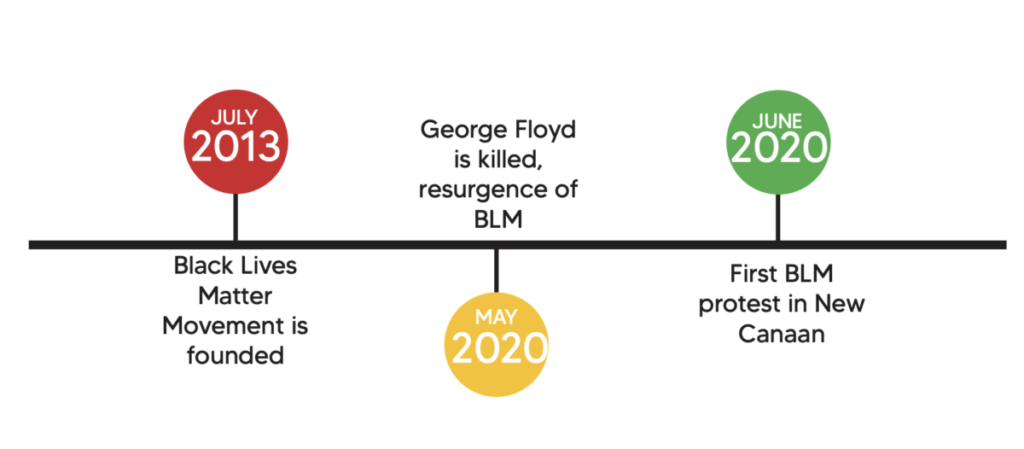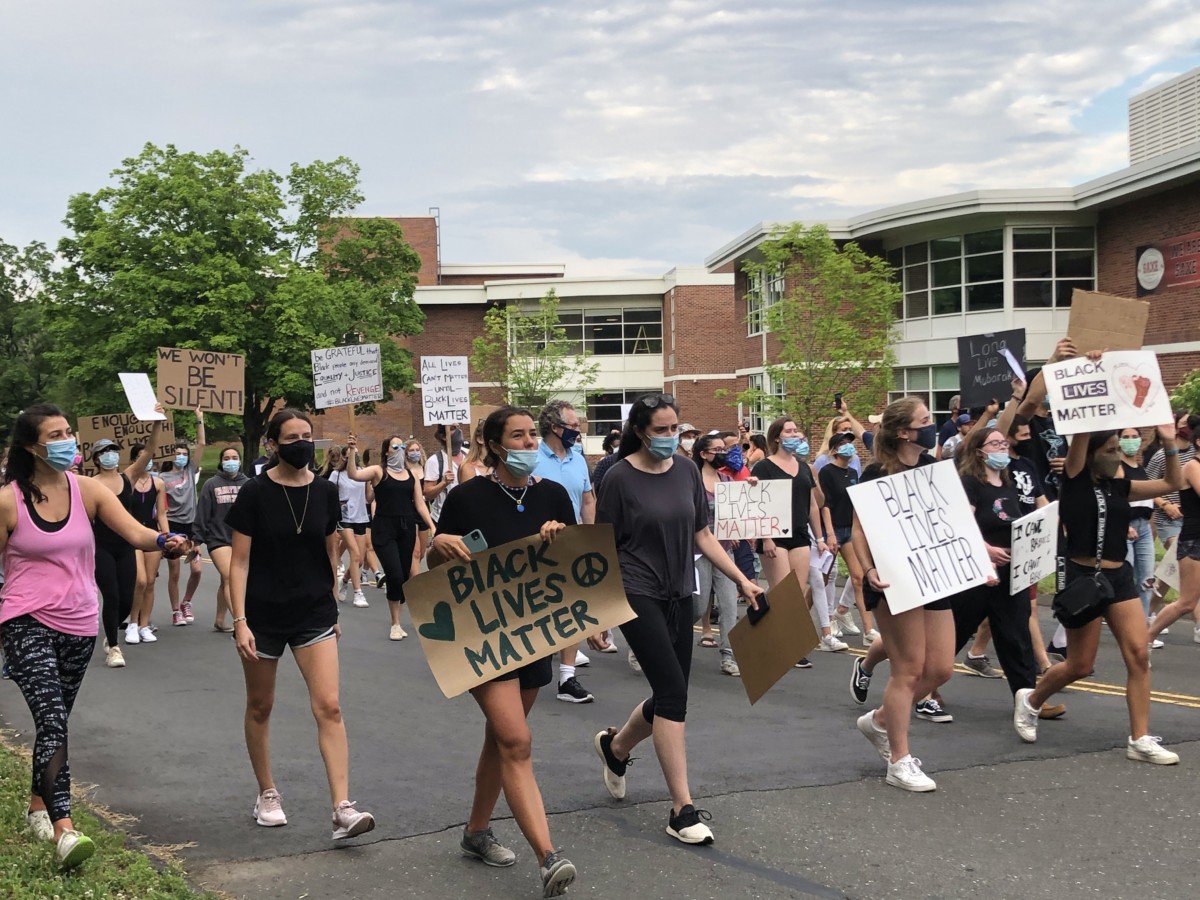Julie Song, Blogs Editor
@juliescourant
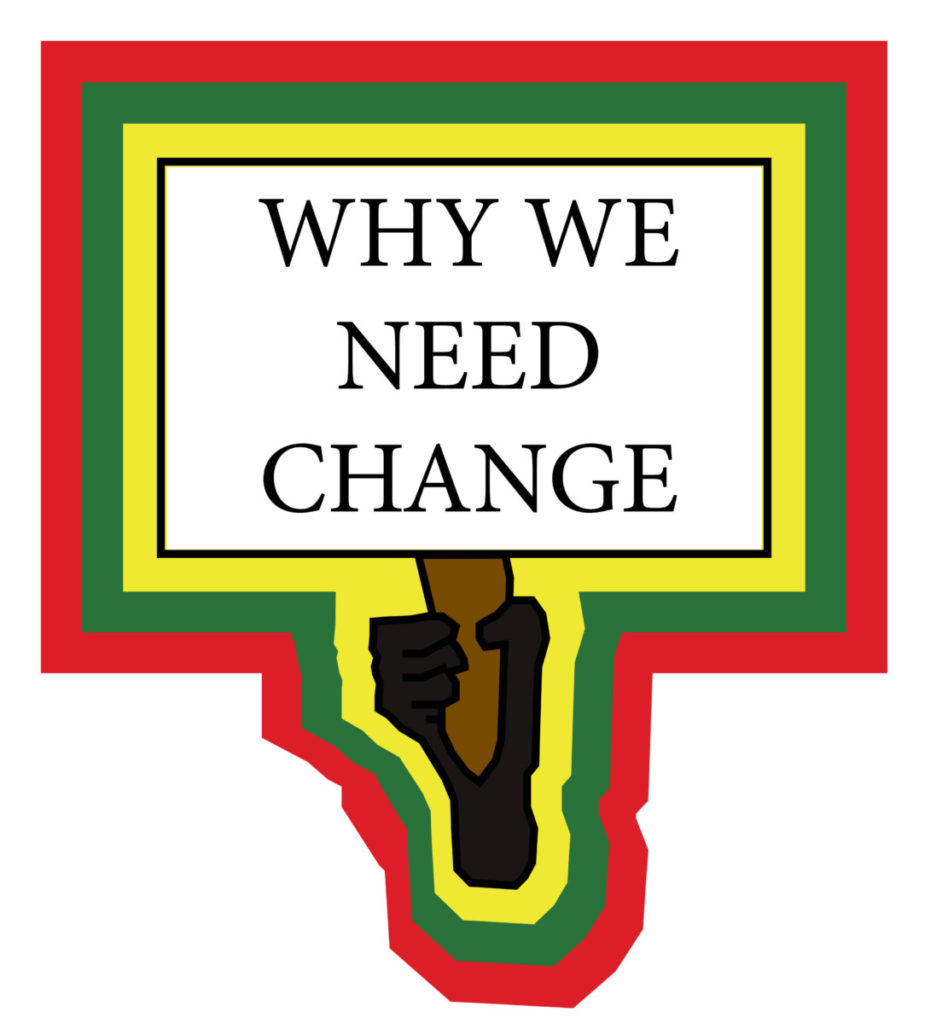
On June 4, 2020, more than 2,000 community members gathered in New Canaan for the first of several peaceful protests, calling on institutions and the public to address systematic racism locally and nationwide. Amidst COVID-19, individuals in this town, community centers, and the local police have tried to answer those calls, creating movements to diversify and educate the town.
Change is necessary to such a socioeconomically homogenous community like New Canaan, especially in education and increasing awareness, something which begins in the individual. “New Canaan is a bubble within the bubble of Fairfield County” said Fatou Niang, organizer of Stand Together Against Racism and the Black Lives Matter protest in June. “This is why it’s important to educate our community because there’s a big difference between ignorance and stupidity.”
According to Junior and A Better Chance Scholar Osasu Uwa-Omede, when you leave the New Canaan bubble you’re sent to the real world. By not incorporating a more diverse curriculum and comprehensive history including all races, “this town does a disservice to its people,” he said.
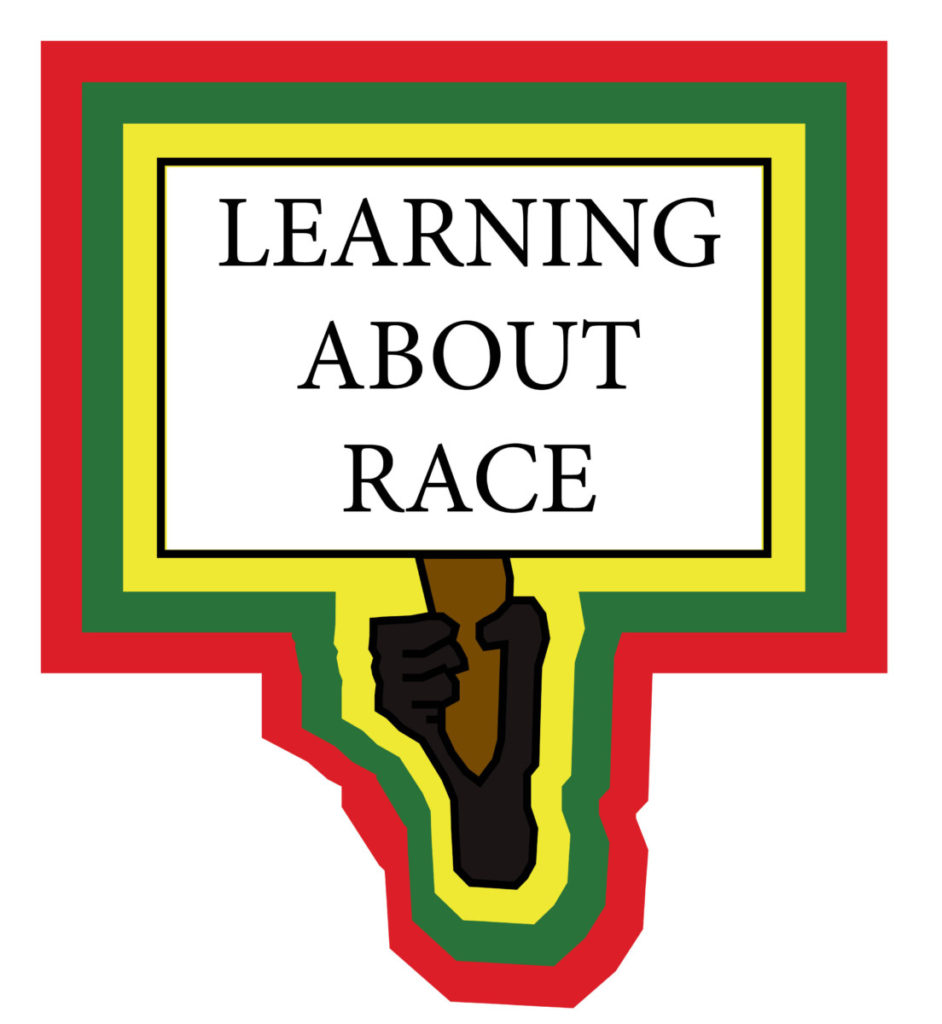
The community has been working towards creating resources and platforms for important conversations in order to help fix this issue. For many, the first step to dismantling racial issues is understanding them. “This must be done through fact-based information,” said Anthony Marrocolla, the manager of Adult Services at the New Canaan Library. “There has been a rise of misinformation, and the job of the library is to provide unbiased, fact-based information.”
Mr. Marrocolla worked alongside several other local organizations to do exactly that in a six-part series called The Start of Change: Addressing Racism. Virtual presentations hosted by experts and professors who connected the history of slavery, race, and racism in New England to modern issues: inequality, mass incarceration, and white privilege. Success in attendance has allowed the series to continue into 2021. On February 22, Professor Erin Winkler will present “How Children Understand Race and How Adults Can Help” which can be registered for through the New Canaan Library’s website.

The Stand Together Against Racism organization, run by Ms. Niang, was quickly established after the success of the June protest and also provides guiding texts, videos, and resources for racial literacy. “There is an awakening and an awareness,” said Ms. Niang, “but it didn’t come from the town, it’s more individual journeys.” To register for S.T.A.R.’s new workshop series this month, “Tools for Building an Anti-Racist Community: Awareness, Conversation, and Reparations,” visit here. The $300 series will run virtually on Tuesdays from February 16 through April 27 and registration limits it to 75 participants.
The Historical Society helped both the New Canaan Library and S.T.A.R. in exploring New Canaan and New England’s Black history. Notably, they discovered that New Canaan actually had a National Association for the Advancement of Colored People, or NAACP, chapter in the past. “You would never know that because of the composition of the town today,” said Ms. Niang.
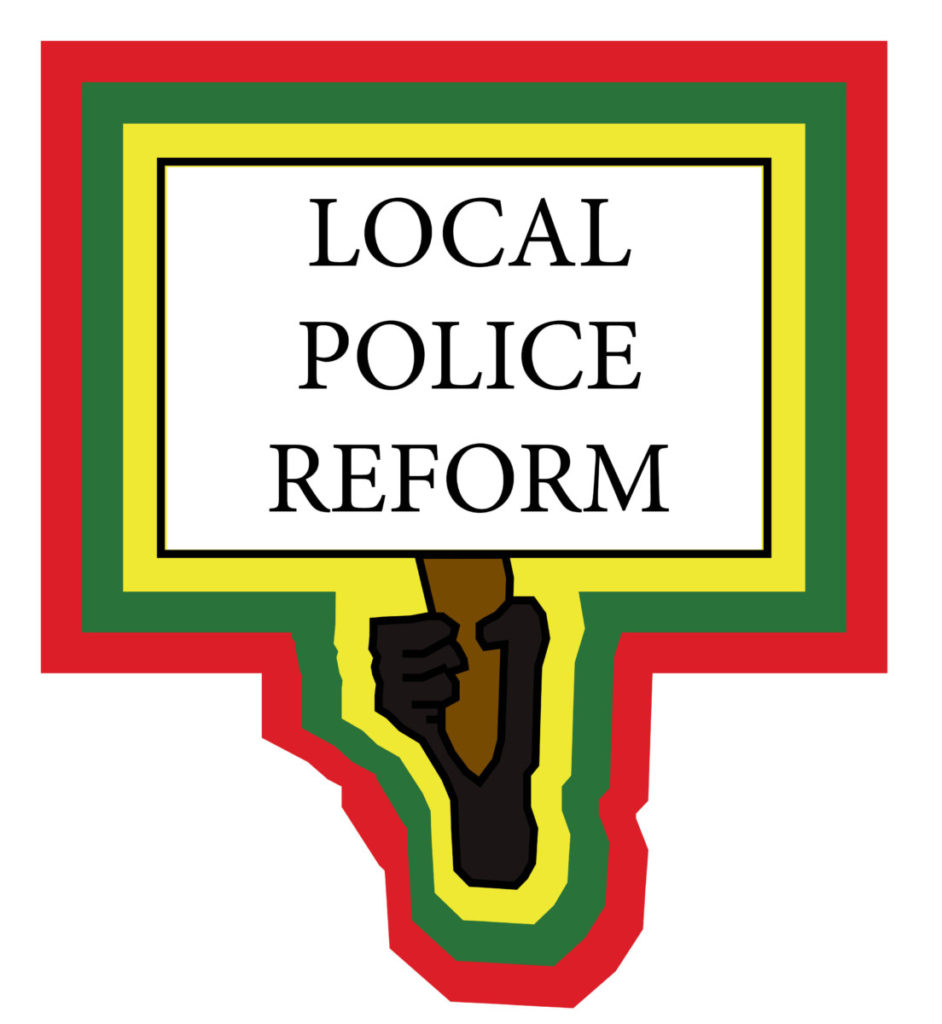
Police attention and reform was also an important topic of interest at the protests, which the New Canaan Police has discussed. “I welcome police reform, which should be focused on training and fact-based change,” said Chief Krolikowski of the New Canaan Police. “The national call for police reform has resulted in good conversations that could lead to smart change.”
Working more on reinforcing diversity, the force hopes to continue to promote existing good behavior. The department is one of the first departments to adopt body cameras and one of the three nationally Commission on Accreditation for Law Enforcement Agencies (CALEA) accredited departments in Fairfield County, which commends departments for complying with nearly 400 fair policing standards.
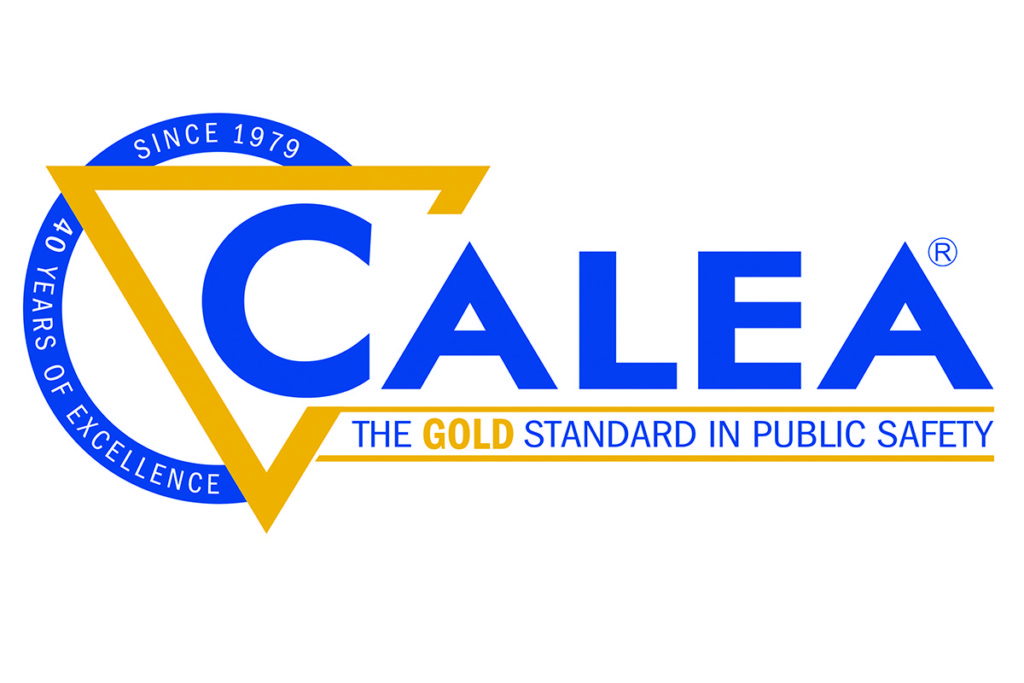
While less than 5% of police departments in this nation are CALEA accredited, the force does not end their work there. “Aside from recruiting a diverse workforce, we are focusing on training which includes implicit bias, life like scenarios, and crisis intervention,” said Chief Krolikowski. Currently the New Canaan Police force is almost 20% African-American or Latinx and is hoping to continue more diverse training. “I periodically meet with area law enforcement and area NAACP leaders to open up the lines of communication so we can more effectively serve our community,” said Chief Krolikowski.
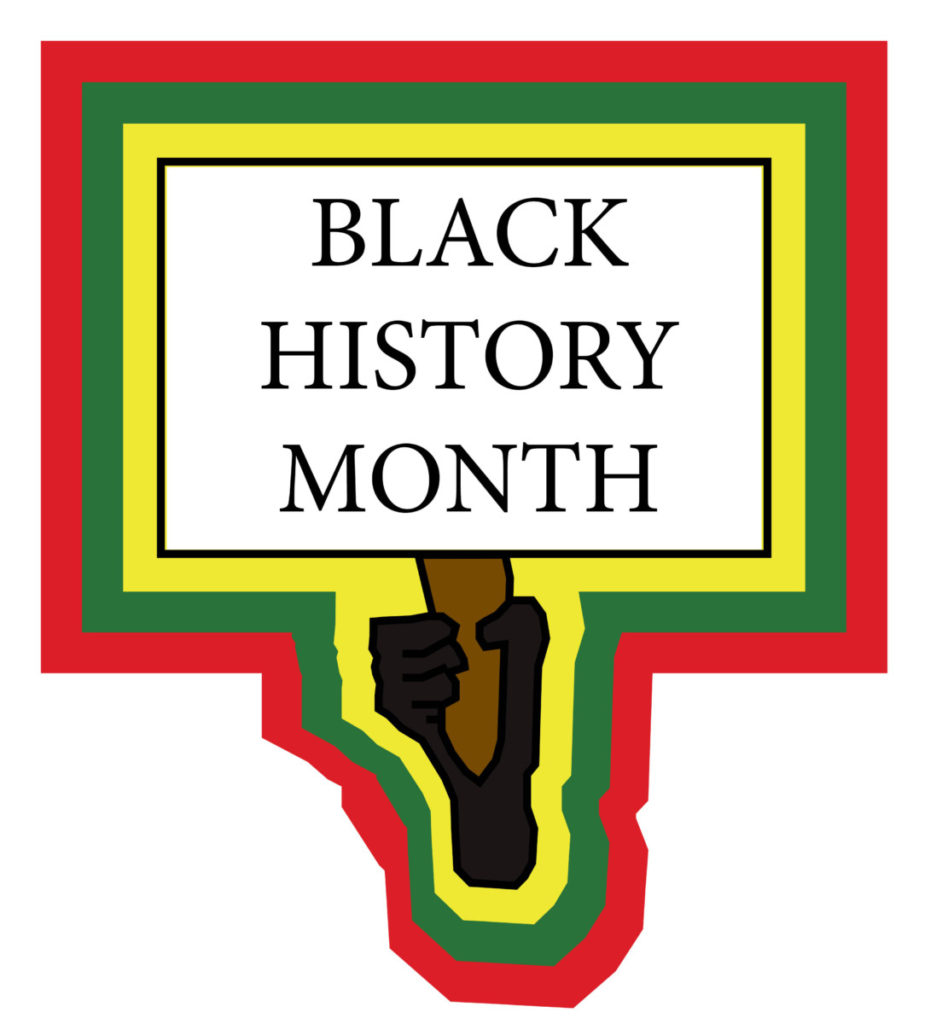
The communication is especially important with the arrival of Black History Month. Community members are pushing for a more diverse curriculum, not just electives or an afterthought, but real, integrated history of all Americans. “The same way we learned about Christopher Columbus and all those European colonizers and explorers, we should learn about different cultures of Africa and the Caribbean cultures that were created after,” said Osasu.
February brings a time to reflect on how to be a better ally and learn about the history of race and racism, not just Martin Luther King Jr. and Rosa Parks, but the smaller individuals as well. This doesn’t and shouldn’t stop at the end of the month. In Ms. Niang’s words, “We’re not Black only in February. We’re not American only on Independence Day. So just focusing on one month, it’s great, but it shouldn’t be segregated to just February.”
